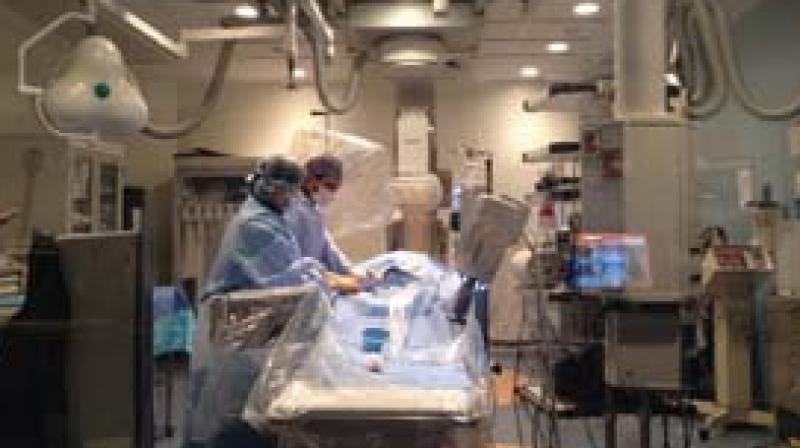Now, chest pain clinics keep hopes of cardiac patients alive!

Bengaluru: While cardiovascular diseases have quadrupled in the last 40 years, 50 per cent of the affected patients arrive too late for treatment, going by doctors. As a solution, chest pain clinics have come up in the city to provide timely and quality emergency cardiac care and save lives.
“Our campus has developed chest pain clinics in small hospitals and nursing homes to provide emergency cardiac care,” says Mr Srinivas Prasad, CEO, Philips Innovation Campus, Bengaluru.
Each clinic is a small healthcare facility equipped with Philips Efficia ECG-100 system that wirelessly transmits the ECGs of patients in real time to a hub that is equipped to read it. Once a patient is confirmed as suffering from a heart attack, he or she is immediately transported in an ambulance to a hospital for further treatment within the golden hour.
Aimed at helping the rural population the clinics provide a simple diagnostic tool to remote rural clinics that patients can make use of.
“People in rural areas do not have adequate, affordable access to even basic cardiac care. As a result, many rural patients delay seeking diagnosis and treatment for cardiac ailments even when they are symptomatic, until they are too late to treat or an expensive procedure is required. These patients often go to the nearest rural primary clinic where neither the equipment nor the clinical expertise exist to diagnose their condition. We are trying to fill this gap," explains Mr Prasad. In a pilot study conducted by Philips with Kasturba Medical College Hospital, Manipal, five rural clinics were linked to the teaching hospital to provide remote ECG diagnosis for patients.
ECGs of 380 patients, which were done at these clinics and transmitted to the hospital, showed that 23 per cent of patients had abnormal readings or required secondary investigation, and three needed immediate intervention, and were transported by ambulance and treated within the golden hour, saving their lives.
It is suggested that primary care physicians (PCPs) at rural clinics should be trained to recognise symptoms of a cardiac problem and perform an initial triage and the nursing/technical staff should be trained to perform basic diagnostic tests such as a 12-lead electrocardiogram and transmit the report along with a brief history of the patient to a hospital, that can advice on how best to treat him or her.

